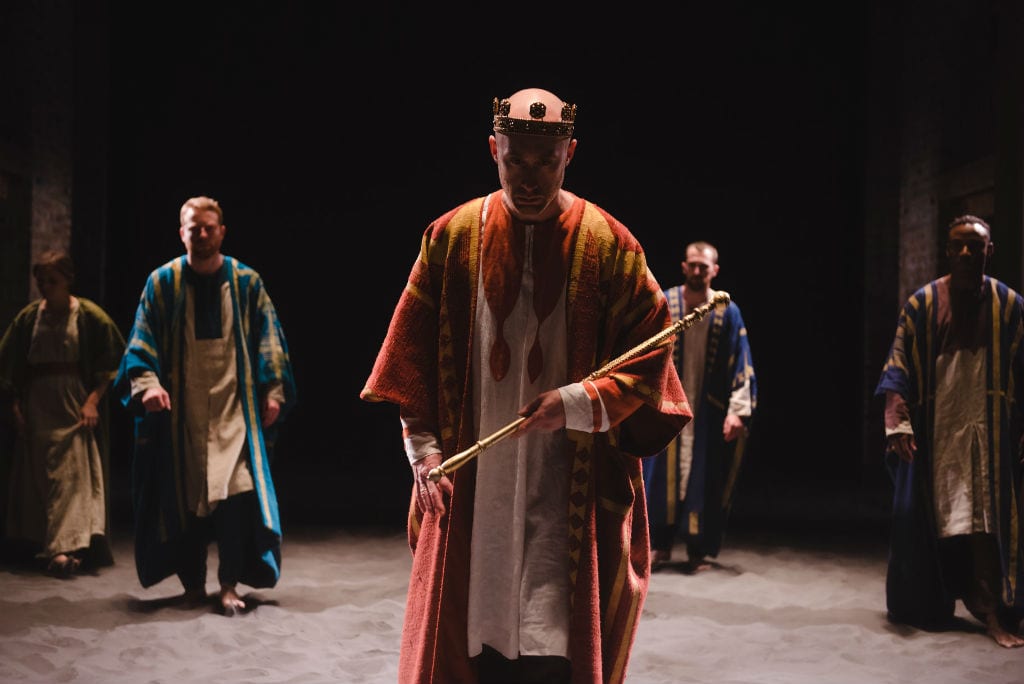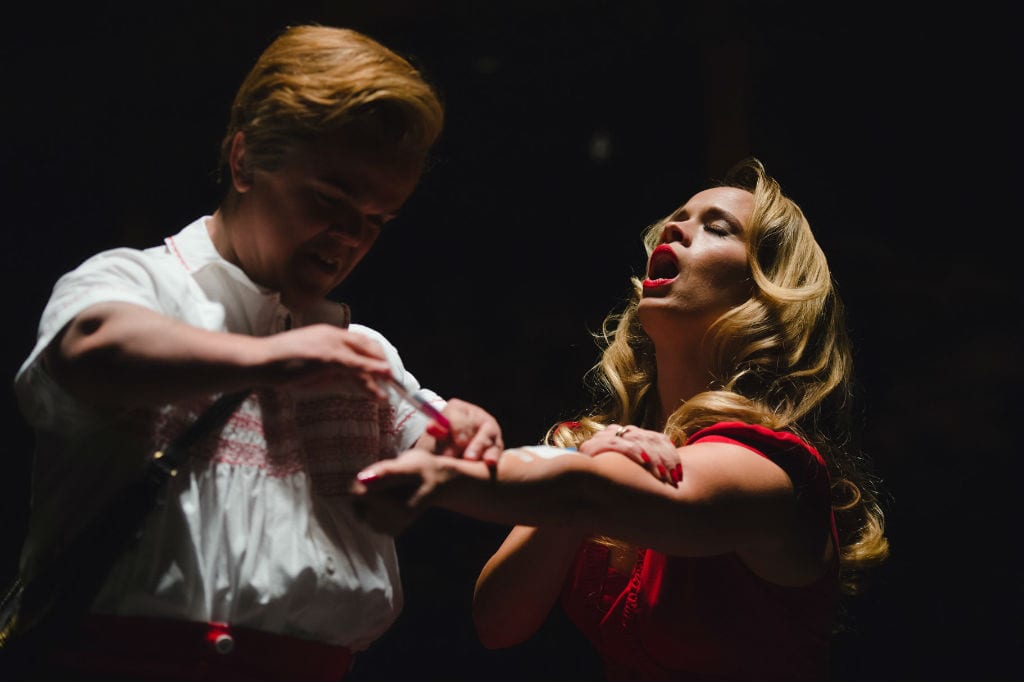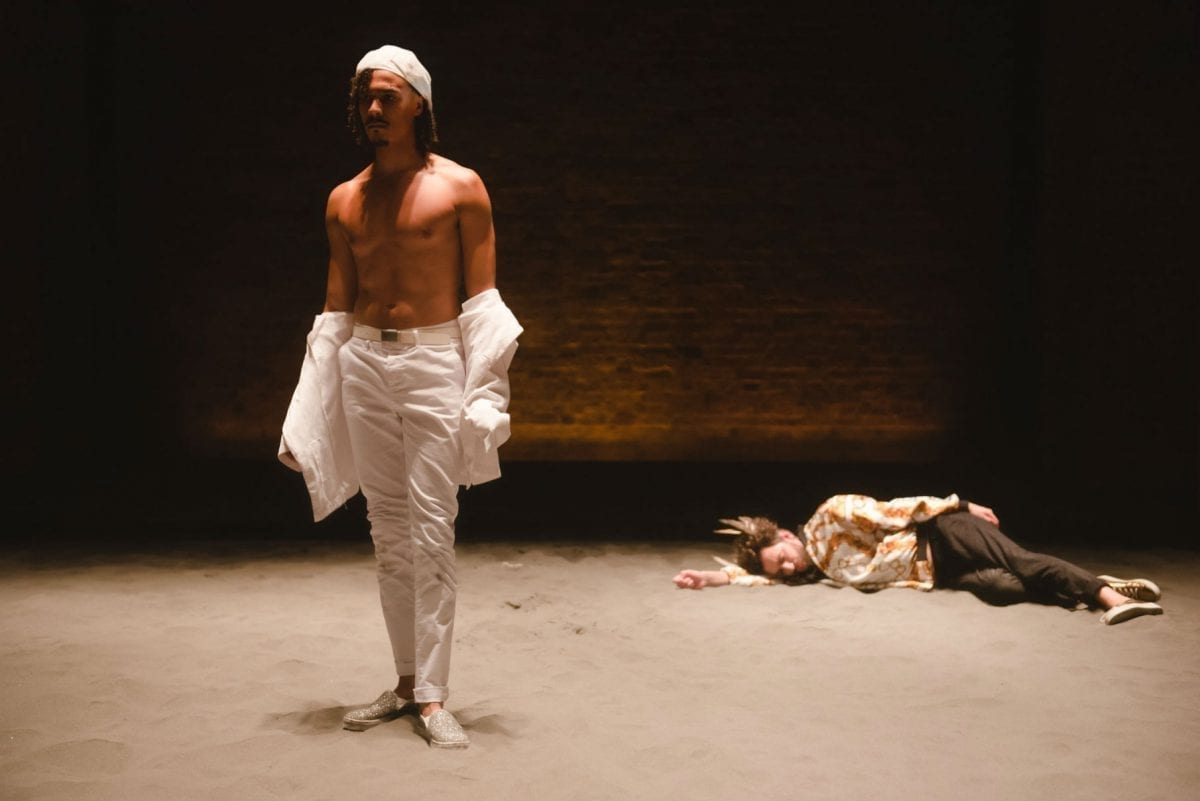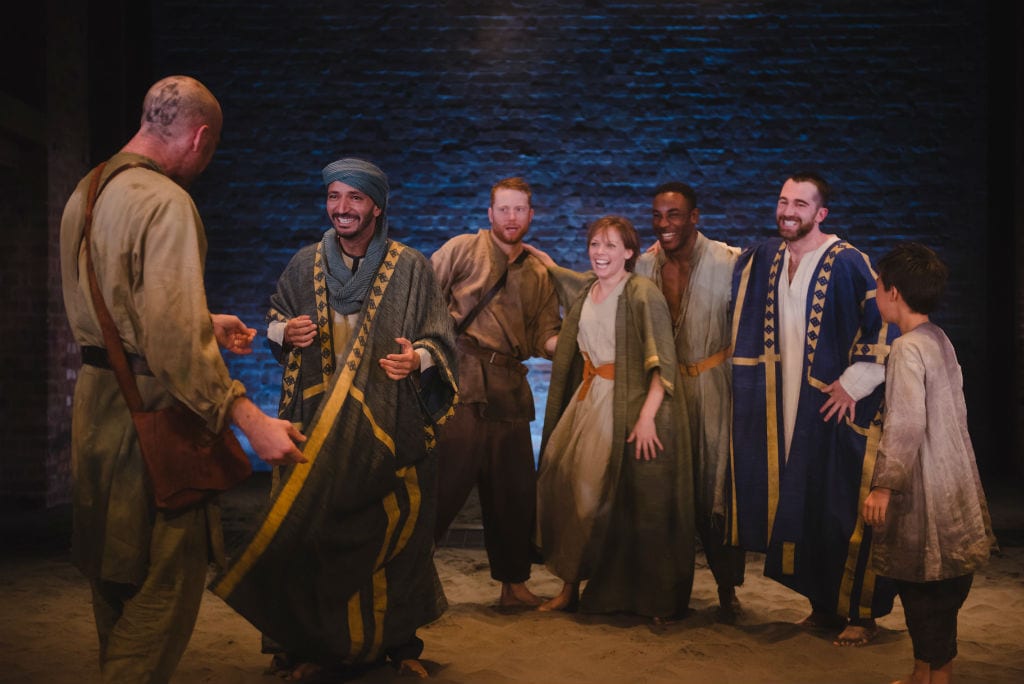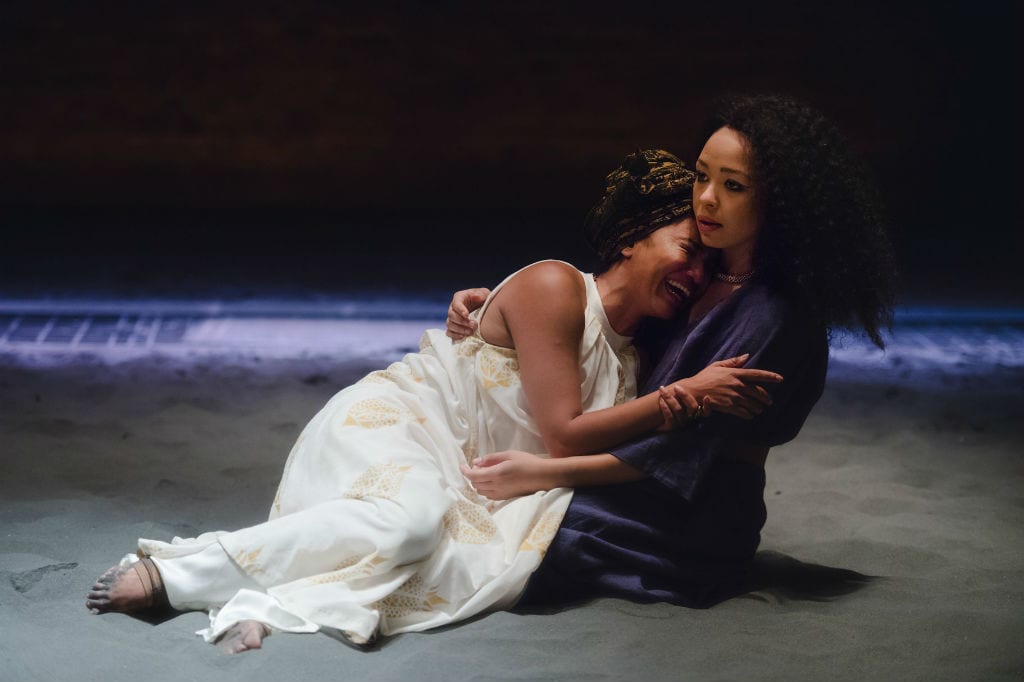Christopher Marlowe’s first play, “Dido, Queen of Carthage” has been given a splendid and totally engaging production in Stratford. It completely vindicates the legendary early rivalry with Shakespeare. It could be seen as concluding the RSC Roman Season by going back to the prequel, the story of Aeneas before the founding of Rome. The play itself is not done often enough; and I have never seen it done before with such clarity of understanding of its complex, black humour and real painful tragic conclusion; and this production vividly shows us the wit, the linguistic skills, the humour, the parodic laughter and the searing abilities of Marlowe to understand mixture of comedy and tragedy in human life that made the play such a hit in his day just in advance of Shakespeare’s rise. This production makes one wish fervently that Marlowe had not been killed so young and that he had survived to pace Shakespeare and challenge him throughout those years when Shakespeare was so productive.
The production is sensitively directed by the very talented Kimberley Sykes makes one simply want to see more Marlowe. She has a real understanding of the variety of tones and reactions within the play. Also, given that Vergil’s tale has been much adapted since, one cannot help but be reminded of the versions of the story turned into opera by Purcell and Berlioz at the very least. What is surprising in this play is the extent to which Marlowe places the fates of the protagonists firmly in the hands of outrageously privileged and madcap gods who come across as upper class dysfunctional human beings. When I entered the theatre, Venus, Jupiter and Juno were wandering about the audience, and Venus (a suitably gorgeous and mischievous Ellie Beaven embodying the goddess) caught my eye and blew me a kiss! Lecherous Jupiter (Nicholas Day) was already besotted with Ganymede (Andro Cowperthwaite) and Juno (a very striking Bridgitta Roy) was looking irritable and annoyed. If the gods stand in for a privileged, corrupt upper class playing games with the humans for their own ends, the human beings themselves eventually do take on a tragic stature. Sandy Grierson’s Aeneas is vividly torn between his noble fate as required by the gods to continue the tale of Troy by founding Rome and his sincere and abiding feelings for Dido and for the easier, glamorous life she is offering him. Ben Goffe as Cupid (and Cupid in Disguise) is hilarious and also touching as he chases people about with his golden arrows (syringes) dementedly shooting into them the drugs that will make them fall in love. All the elements of the story are there – the horrific genocide perpetrated by the Greeks on the Trojans retold, the royal hunt and storm that drive Dido and Aeneas to shelter in a cave and into each other’s arms. Throughout the play, which is beautifully designed by Ti Green and lit by Ciaran Bagnall as well as choreographed (Ayse Tashkiran), the language and the character development are completely engaging and wonderfully portrayed; and the images are startling and memorable, especially the ending in which the admirable and totally entrancing Chip Chung as Dido enacts the Queen’s startling and grizzly self-immolation.

